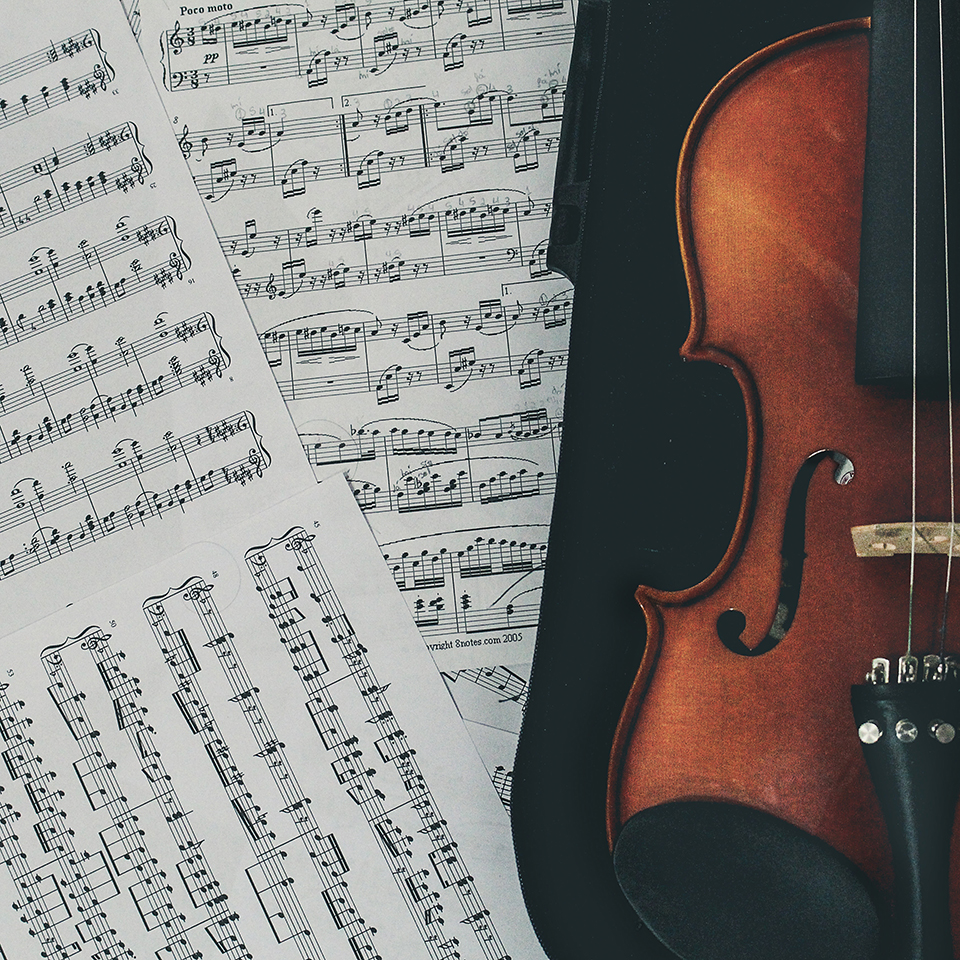My wife, Patti, has been a music director in parish contexts for over thirty years. She is an accomplished vocal performer, an exacting choral conductor, and a gifted composer. She treats her work as a sacred task in service to the majesty and dignity of the divine liturgy, and experiences her work as an act of prayer and as a call to prayer. Anyone who has ever watched her conduct knows it is pure choreography. David twirling about the Ark of the Covenant with unhampered joy—with abandon!—is the best analogy I can think of. Her ebullience and intensity electrify every space she enters.
And as any artist knows, the grace of bringing beauty into the world plants the cross of Christ, the origin and standard of all beauty, deep into the core of her being. How grateful we should always be to artists.
Patti has brought into our family over the years a steady diet of the arts, and has taught our children—and especially me—the intimate relationship between God and beauty. There have been many times over the years when some of my most profound experiences of God in prayer, in the context of liturgical worship, have come through her work.
One example I felt moved to share today was when she had the choir perform Mary E. Smisek’s Kyrie, which is an arrangement of Beethoven’s Symphony No. 7 in A Major, opus 92, movement 2. The Kyrie eleison, which is Greek for “Lord have mercy,” stands at the heart of the Penitential Act in the Mass. In those ancient words drawn from Sacred Scripture, we sinners—like Isaiah—seek God’s forgiveness and healing grace as we enter into the holy-holy-holy presence of God:
Woe is me! I am lost, for I am a man of unclean lips, and I live among a people of unclean lips; yet my eyes have seen the King, the Lord of hosts! (Isaiah 6:5)
It was Lent, and my chosen penance that year was exposing in me just what a weak and pathetic man I was. That year, the combination of graduate studies, my job, and our four small children was an “exhaustion-cocktail,” and so my threshold of tolerance was low. I began to back off on my early morning prayer discipline, as my struggles with guilt made prayer uncomfortable, and I found excellent excuses to busy myself with other things. I am excellent at that.
It was the third Sunday of Lent, and as Mass unfolded the Kyrie began. I had never heard this arrangement before. Immediately, its magnificent tones washed over me and I experienced the most profound awareness of being loved by God very specifically in what I considered my most loathsome self. I saw myself as a frightened child and immediately thought of God calling out to Adam, who was hiding in shame amid Eden’s trees: “Where are you?” But whereas previously I had always thought of those words as a divinely irritated reproach, I knew in that moment, with absolute clarity, these were words of tender compassion.
That grace not only remained with me throughout Lent, and emboldened me to return to daily prayer, but to this day if I hear this piece of music I am transported at once into the Garden, where mercy again calls out: “Where are you?” I am also reminded of Fr. Tom Hopko’s searching insight:
Whenever we pray Kyrie eleison, don’t imagine we’re trying to convince God to be something he isn’t. Like, “O God, you are usually a tyrant, be nice today if you please!”
No!
We are simply making a declaration in the imperative form: “O God, you who ARE mercy, be who you are toward me!” Like a sunflower that turns toward the sun to receive its warmth and light, only when we confess with faith who God truly is can we receive what he longs to give us . . .
